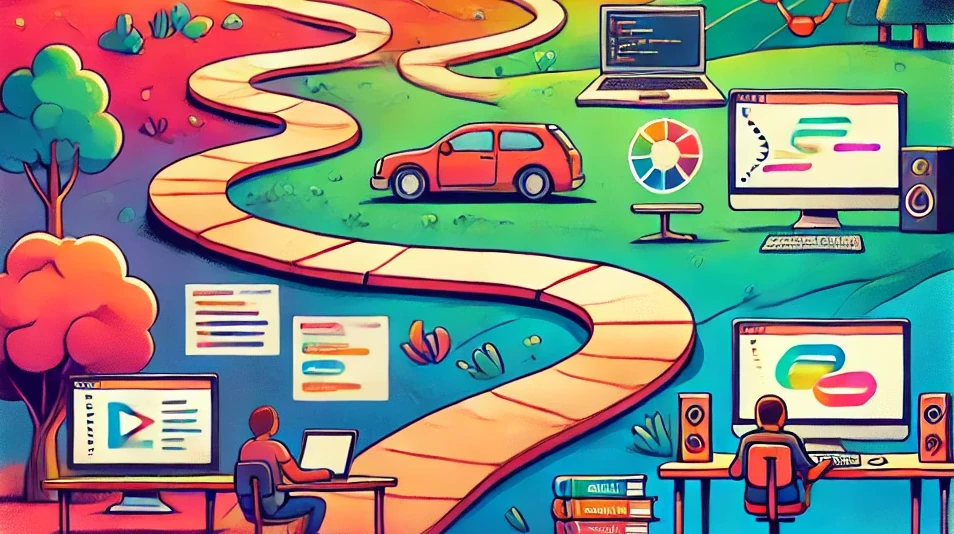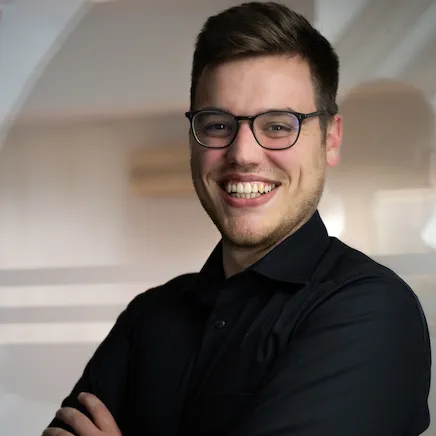Why Focus Matters More Than Frameworks
Reflections on balancing curiosity and productivity in coding, focusing on deeper learning over chasing every new framework or tool.

My Journey in Coding
I started coding more than a decade ago. It began with personal projects, then expanded into larger challenges at university, and later into enterprise projects as part of my work. Along the way, I’ve realized there’s always something new to learn, an algorithm to handle data more efficiently, a better way to structure a feature, or ways to improve how users experience an application. And I love it.
The Pull of New Tools
Every programming language or framework has its quirks and challenges. So when a new framework pops up, it’s tempting to dive in and explore. That’s especially true if you’re someone like me who enjoys trying new things and tweaking workflows.
The fear of missing out on something exciting is real, though. Over the years, I’ve explored many frameworks and tools.
- React looks interesting, let’s build a quick to-do app.
- Svelte has an interactive tutorial? Let’s try it out.
- At work, I wrote applications with Angular and Spring Boot, so should I check out Next.js, Remix, or Vue?
While I enjoyed learning all these tools, I often ended up with small side projects. I wasn’t stuck in tutorial hell, but I wasn’t building much of lasting value either.
Should You Chase Every New Framework?
No, but you shouldn’t stop exploring new tools and frameworks. Learning is important, but it needs focus. The grass is not always greener on the other side.
Sharpening Skills vs. Chasing Trends
In my opinion, it’s easy to fall into the trap of trying out everything at once. Like a child in a candy store. But I’ve found that going deeper into a few tools or concepts is more rewarding than trying to cover everything at once.
I like to think of coding skills as tools in a toolbox. You don’t need to master every framework, find the one you are most effective. It’s better to understand a few tools deeply, and knowing the differences to the other ones, than to spread yourself too thin.
Balancing Curiosity and Productivity
One lesson I’ve learned is how to balance curiosity with productivity. For example, when working on side projects, I try to avoid time-consuming tasks like constant dependency updates or time-consuming server setups. At the same time, I make sure I’m not neglecting things like security or maintainability. This can easily achieved, by using the right tools.
That’s one reason I switched my personal website from Remix to Hugo. It simplified my workflow and reduced maintenance overhead. While I gave up server-side rendering, the site loads much faster now, and since I’ve been working more with Go, it felt like a natural fit. This change gave me more time to focus on other projects instead of worrying about unnecessary tidy-up work.
In Summary
Over the years, I’ve realized that I get more out of focusing on deeper, more meaningful learning. Instead of chasing every new framework or library, I’ve found value in spending my time on tools and concepts I want to use long-term. For me, it’s not about trying everything. It’s about improving my strong foundation and professional experience as a software engineer to build user friendly and efficient applications.
Please feel free to provide any kind of feedback. I welcome improvements of any kind. If you notice a spelling mistake or an error in my writing, you can share your adjustments via email, or you can make the changes yourself in the associated content repository.
